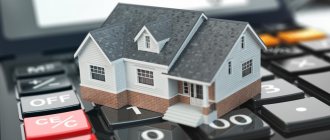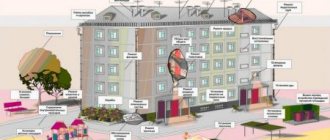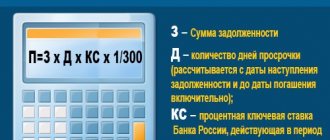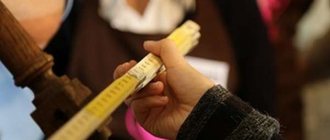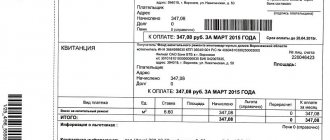Article 169 of the Housing Code (LC) of the Russian Federation states that every owner of an apartment in a multi-storey building must pay a monthly contribution for major repairs. This is money accumulated on the balance sheet of the housing stock, which will later be used to carry out repair work in the building.
The Code obliges citizens to independently accumulate savings, since the non-residential premises of the building: corridors, stairwells, elevators, basements are the common property of all owners of apartments in such buildings.
What does a major overhaul include?
Payment for major repairs is charged to citizens based on the requirements and rules provided for by the Housing Code. In particular, the following features must be taken into account:
- the obligation to make deductions falls only on the shoulders of apartment owners;
- tenants under a commercial or social tenancy agreement do not have to pay for major repairs;
- tariffs are the same for all residents of one building (the amount of the fee depends on the square footage of the apartment);
- Residents of not all apartment buildings are required to make contributions (in particular, homeowners in dilapidated buildings are exempt from this obligation).
Contributions for major repairs are targeted deductions that can subsequently be used only for a limited list of purposes. In particular, for the following categories of repair work:
- repair, planned reconstruction of housing and communal services (lighting, sewerage, water supply, gas);
- insulation, repair of basements;
- strengthening the foundation;
- cosmetic and major repairs of the facade, load-bearing structures;
- elimination of mechanical damage and insulation of the roof;
- establishing the operation of elevators and monitoring the functionality of elevator shafts.
Since there are no problems with such structures in new houses, no fees will be charged from residents of new buildings. This exemption is valid for only five years, starting from the date the structure is put into operation.
The State Duma adopted amendments to Article 169 of the Housing Code of the Russian Federation
Today, in the third (final) reading, bill No. 366130-7, introduced by Mikhail Anatolyevich Chernyshev, is being adopted.
The bill proposes to provide, from January 1, 2021, that constituent entities of the Russian Federation have the right to provide compensation for the costs of paying a contribution for major repairs to owners of residential premises who have reached the age of 70 or 80 years, if the family in which they live consists not only of non-working pensioners, but also , if it consists of non-working pensioners and (or) non-working disabled people of group I and (or) II or if the family of the specified owner consists only of non-working disabled people of group I or II.
The initiative is due to the fact that in practice there are quite often situations where the persons specified in Part 2.1 of Article 169 of the Housing Code of the Russian Federation (non-working owners of residential premises who have reached the established age of 70 or 80 years) live together with disabled people I and (or) II groups and the provided compensation for the costs of the contribution for major repairs of common property in an apartment building are not provided to these persons (since today it is provided for either single living of such owners, or living as part of a family only of non-working pensioners).
A non-working owner of a residential premises who has reached the established age is deprived of this benefit, because does not live as part of a family consisting only of non-working citizens of retirement age living together, and disabled people of groups I and (or) II cannot use the benefits provided to them by Article 17 of the Federal Law of November 24, 1995 No. 181-FZ “On the social protection of disabled people in the Russian Federation”. Federation” benefit, since they are not homeowners and are not responsible for paying a contribution for major repairs.
It is important to take into account that the pension provision of the above groups of citizens is almost identical. According to official data from Rosstat, the average pension for disabled people of group I is 15,315.4 rubles, for disabled people of group II - 12,479.3 rubles. The average amount of payments to old-age pensioners is 12,830.4 rubles.
Consequently, if we compare a family consisting of non-working pensioners and a family consisting of non-working pensioners and non-working disabled people of groups I and (or) II, then the source and amount of income of each of the families in question is comparable, but the latter family is completely deprived of the benefits provided by law.
The bill received approval from the Government of the Russian Federation. The changes made will affect more than 170 thousand families across the country.
Moreover, work in this direction will continue and next year it is planned to study the issue of further expanding the list of citizens entitled to receive a subsidy to pay the contribution for major repairs.
Where do funds go for major repairs of apartment buildings?
Who must pay contributions for major repairs is regulated by federal legislation (in particular, Article 169 of the Housing Code of the Russian Federation). It is also stipulated that the use of monetary savings occurs only for their strict intended purpose, as well as in accordance with the wishes of the residents of the apartment building themselves. Homeowners exercise control functions by performing the following procedures:
- choosing a fund in which contributions will be accumulated;
- preference for one or another repair company authorized to carry out work;
- checking financial reports on activities carried out;
- familiarization with the plan for upcoming construction work (cost, deadlines).
Citizens should always be aware of where savings will be or have been spent. In particular, the following rules for reconstruction and repair must be taken into account:
- work is not limited by seasons and weather conditions (it is possible to receive funds on an emergency basis if structures need to be urgently repaired);
- the planned activity must have a strictly defined plan with a long execution period (about a year), as well as upcoming financial costs;
- After completion of the work, residents receive a report regarding the activities completed, money spent and the balance of the balance.
Article 169 of the RF Housing Code. Contributions for major repairs of common property in an apartment building
Housing Code>Title IX Housing Code of the Russian Federation. ORGANIZATION OF CAPITAL REPAIRS OF COMMON PROPERTY IN MULTIPLE APARTMENT BUILDINGS>Chapter 15 of the Housing Code of the Russian Federation. GENERAL PROVISIONS ABOUT CAPITAL REPAIRS OF COMMON PROPERTY IN APARTMENT BUILDINGS AND THE PROCEDURE FOR ITS FINANCING>Article 169. Contributions for major repairs of common property in an apartment building
1. Owners of premises in an apartment building are required to pay monthly contributions for major repairs of common property in an apartment building, with the exception of cases provided for in part 2 of this article, part 8 of article 170 and part 5 of article 181 of this Code, in the amount established in accordance with part 8.1 of Article 156 of this Code, or, if the corresponding decision is made by the general meeting of owners of premises in an apartment building, in a larger amount.
2. Contributions for major repairs are not paid by the owners of premises in an apartment building that is recognized in accordance with the procedure established by the Government of the Russian Federation as being in disrepair and subject to demolition, as well as in the event that an executive body of state power or a local government body makes decisions on the seizure of a land plot for state or municipal needs, on which this apartment building is located, and on the seizure of each residential premises in this apartment building, with the exception of residential premises owned by the Russian Federation, a constituent entity of the Russian Federation or a municipal entity. Owners of premises in an apartment building are exempt from the obligation to pay contributions for major repairs starting from the month following the month in which the decision to withdraw such a land plot was made.
2.1. The law of a constituent entity of the Russian Federation may provide for the provision of compensation for the costs of paying a contribution for major repairs, calculated based on the minimum amount of the contribution for major repairs per one square meter of total living space per month, established by a regulatory legal act of a constituent entity of the Russian Federation, and the size of the regional standard of regulatory area of residential premises used to calculate subsidies, single non-working owners of residential premises living alone who have reached the age of seventy years - in the amount of fifty percent, eighty years - in the amount of one hundred percent, as well as living as part of a family consisting only of non-working citizens living together pension age, owners of residential premises who have reached the age of seventy years - in the amount of fifty percent, eighty years - in the amount of one hundred percent.
3. The obligation to pay contributions for major repairs arises for the owners of premises in an apartment building after the expiration of the period established by the law of the constituent entity of the Russian Federation, which is no less than three and no more than eight calendar months, starting from the month following the month in which the approved document was officially published regional capital repair program in which this apartment building is included, except for the case established by part 5.1 of Article 170 of this Code.
4. Income from the transfer for use of common property in an apartment building, funds from a homeowners’ association, housing cooperative, including income from the economic activities of a homeowners’ association, housing cooperative, may be allocated by decision of the owners of premises in an apartment building, or by the decision of members of the owners’ association housing, a decision of members of a housing cooperative, adopted in accordance with this Code, the charter of a homeowners’ association, the charter of a housing cooperative, to form a capital repair fund to fulfill the obligation of the owners of premises in an apartment building to pay contributions for major repairs and (or) to form part of capital repair fund in excess of that formed on the basis of the established minimum contribution for capital repairs, which can be used to finance any services and (or) work on major repairs of common property in an apartment building.
< Article 168. Regional program for capital repairs of common property in apartment buildings
Article 170. Capital repair fund and methods of forming this fund >
Is it legal to demand payment for major repairs?
Payment of contributions for major repairs is an obligation provided for in the articles of the Housing Code, therefore the demand for payments is legal. But there are several features to consider:
- payment must be made regardless of whether the citizen lives in his apartment;
- the invoice for major repairs is included in the list of housing and communal services, and therefore non-payment entails the application of legal liability standards;
- when selling a home, the debt for major repairs passes to the next owner;
- the absence of receipts from the housing fund does not exempt from deductions.
On the territory of the Russian Federation, mandatory contributions began to be calculated in 2014. The minimum amount of cash contribution for major repairs is fixed by the regional government. And municipal authorities can establish lists of preferential categories of the population that are exempt from all types of deductions or qualify for discounts.
Article 169. Contributions for major repairs of common property in an apartment building (LC RF)
- home
- Laws
- Housing Code of the Russian Federation
1. Owners of premises in an apartment building are required to pay monthly contributions for major repairs of common property in an apartment building, with the exception of cases provided for in part 2 of this article, part 8 of article 170 and part 5 of article 181 of this Code, in the amount established in accordance with part 8-1 of Article 156 of this Code, or, if the corresponding decision is made by the general meeting of owners of premises in an apartment building, in a larger amount (as amended by Federal Law of July 29, 2021 N 257-FZ - Collection of Legislation of the Russian Federation, 2021, N 31, Art. 4806).
2. Contributions for major repairs are not paid by the owners of premises in an apartment building that is recognized in accordance with the procedure established by the Government of the Russian Federation as being in disrepair and subject to demolition, as well as in the event that an executive body of state power or a local government body makes decisions on the seizure of a land plot for state or municipal needs, on which this apartment building is located, and on the seizure of each residential premises in this apartment building, with the exception of residential premises owned by the Russian Federation, a constituent entity of the Russian Federation or a municipal entity. Owners of premises in an apartment building are exempt from the obligation to pay contributions for major repairs starting from the month following the month in which the decision to withdraw such a land plot was made.
2-1. The law of a constituent entity of the Russian Federation may provide for the provision of compensation for the costs of paying a contribution for major repairs, calculated based on the minimum amount of the contribution for major repairs per one square meter of total living space per month, established by a regulatory legal act of a constituent entity of the Russian Federation, and the size of the regional standard of regulatory area of residential premises used to calculate subsidies, single non-working owners of residential premises living alone who have reached the age of seventy years - in the amount of fifty percent, eighty years - in the amount of one hundred percent, as well as living as part of a family consisting only of non-working citizens living together retirement age, owners of residential premises who have reached the age of seventy years - in the amount of fifty percent, eighty years - in the amount of one hundred percent (Part 2-1 was introduced by Federal Law of December 29, 2015 N 399-FZ - Collection of Legislation of the Russian Federation, 2021, N 1, art. 19).
3. The obligation to pay contributions for major repairs arises for the owners of premises in an apartment building after the expiration of the period established by the law of the constituent entity of the Russian Federation, which is no less than three and no more than eight calendar months, starting from the month following the month in which the approved document was officially published regional capital repair program in which this apartment building is included, except for the case established by part 5-1 of Article 170 of this Code (as amended by Federal Law of December 20, 2021 N 399-FZ - Collection of Legislation of the Russian Federation, 2021, N 52, Art. 7922).
4. Income from the transfer for use of common property in an apartment building, funds from a homeowners’ association, housing cooperative, including income from the economic activities of a homeowners’ association, housing cooperative, may be allocated by decision of the owners of premises in an apartment building, or by the decision of members of the owners’ association housing, a decision of members of a housing cooperative, adopted in accordance with this Code, the charter of a homeowners’ association, the charter of a housing cooperative, to form a capital repair fund to fulfill the obligation of the owners of premises in an apartment building to pay contributions for major repairs and (or) to form part of capital repair fund in excess of that formed on the basis of the established minimum contribution for capital repairs, which can be used to finance any services and (or) work on major repairs of common property in an apartment building (as amended by Federal Law of June 29, 2015 N 176- Federal Law - Collection of Legislation of the Russian Federation, 2015, No. 27, Art. 3967).
(Article 169 was introduced by Federal Law of December 25, 2012 N 271-FZ - Collection of Legislation of the Russian Federation, 2012, N 53, Art. 7596)
open a section in a document find materials
Article 168. Regional program for capital repairs of common property in apartment buildings
Article 169. Contributions for major repairs of common property in an apartment building
Article 170. Capital repair fund and methods of forming this fund
Questions and answers on Article 169
#56379 08.11.2020 (11:11)
Payment for major repairs after 80 years
Good day. My mother turned 80 years old. I work and live with her. Does she have a discount on paying for major repairs? Thank you.
Author: Lyubov Replies: 5 Reply Read more
#52270 20.03.2020 (11:06)
payment for major repairs
Hello! Our house was built in 2014. without our knowledge, in 2019 it was included in the overhaul in 2021, they sent receipts for the year. Local legislation requires a list of documents for the house to carry out major repairs. The regovorator does not have them. Is it legal to charge a fee?
Author: valery Replies: 2 Reply Read more
#49516 12.12.2019 (12:51)
Contributions to the fund for capital repairs of apartment buildings
Hello, dear pros! In accordance with the legislation of the Russian Federation, the payer of the specified contribution has the right to a 50% benefit upon reaching 70 years of age. In the Kerch office of the non-profit organization “RF “KRMD RK” they demanded that I submit NINE documents and their copies. Please explain why and on what basis I must provide: 1. A registration certificate, which costs 5,000 rubles. and which has long been replaced in other laws by the Technical Plan (during the privatization of the apartment, just a year ago, it was the Technical Plan that was required from me); 2. Work book; 3. Bank card details.
Author: Klintsov Alexander Mikhailovich Replies: 6 Reply Read more
#48833 18.11.2019 (10:50)
Do I have to pay for repairs to a MKD after 80 years?
my father, who is 82 years old and lives alone in an apartment owned by me as a pensioner of the Russian Ministry of Defense (I’m 53 years old), should he be paid for the repair of the apartment building?
Author: Alexander Replies: 3 Reply Read more
#38881 03/24/2019 (10:29) 300 rubles paid.
the house is to be demolished, and you will pay for major repairs....
Hello, please tell me... This is the situation... In 2016, we bought an apartment through the wall in order to increase the living space. All debts for housing and communal services were paid off. But then they introduced payment for major repairs, they paid for a couple of months, then a recommendation came from the MINISTRY OF CONSTRUCTION, that the house was in disrepair and should be written off. After another couple of months, the house was recognized as in disrepair, subject to demolition and resettlement of the residents. And the Unified Settlement Center continued to send receipts for payment for major repairs. After several trials, there were no new receipts, but the ERCC demands payment for THAT period until it was recognized. Tell me, is this legal? After all, there were no major repairs and there won’t be any?! What should I pay for then?
Author: Natalya Replies: 3 Reply Read more
Reasons for non-payment of receipts for major repairs
Art. 169 of the Housing Code (Housing Code) of the Russian Federation stipulates that it is mandatory to pay contributions. And such a responsibility equally falls on the shoulders of individuals and organizations that have acquired the lower floors for carrying out business and other activities. But in practice, people often refuse to make payments. This may be due to the following reasons:
- The program is valid indefinitely. This means that money is being collected non-stop, but when it will be spent is unknown. Apartment owners who plan to sell their housing in the future justify their refusal by saying that they do not live and will never live in this building and enjoy its benefits. The law clearly states that the fact of living in a multi-storey building or in another place does not affect the possibility of withdrawing deductions.
- No need to use separate communications. For example, ground floor residents do not need to use the elevator.
- Disagreement with the established amount of deductions. The territory of each subject of the Federation has its own personal coefficient, which must be taken into account when calculating the cost of major repairs. But residents and commercial funds have the right to independently regulate the amount of payments in favor of an increase, which is not always well received by individual residents.
What are the consequences of refusing to pay for major repairs?
All owners must pay the funds based on the amount shown on the receipt. Payment of a smaller amount or no transfers at all will entail the application of legal liability measures. In practice, housing companies use the following enforcement measures:
- Regular reminders. Every week, starting from the first day of missing a mandatory payment, the funds begin to send an official letter to the owner’s address with a reminder that the debt will have to be repaid as soon as possible. The letter indicates possible enforcement action.
- Accrual of penalties. There is a fine for each missed day.
- Preparation of a statement of claim to the court, which is possible six months after the debt begins to form. Such a measure is fraught with the fact that the debtor will have to pay in full for major repairs for previous periods, as well as additionally compensate for legal costs.
If the court upheld the claim, but the debtor failed to pay, then the bailiff service comes into action. Based on the writ of execution, the FSS can carry out the following actions:
- seizure of property;
- confiscation of property;
- ban on traveling outside Russia.
How to legally avoid paying for major repairs in 2021
Refusing accruals just like that is illegal. But there are completely legal ways to avoid regular payments (depending on the square footage of the property and the regional coefficient, they can reach several thousand rubles). Basic methods of exemption from deductions:
- entrusting responsibilities to tenants using real estate on the basis of a commercial lease agreement (this condition must be specified in the contents of the lease agreement);
- residents can repair their houses themselves, but in practice this is not very profitable financially and is fraught with conflicts between neighbors;
- sale of property;
- reprivatization, that is, the return of the apartment to the ownership of the municipality (or state), although this entails the loss of the right to dispose of property.
The following categories of persons qualify for a half-price discount:
- disabled people of categories 1 and 2;
- disabled children and their parents;
- single pensioners over 70 years of age.
Low-income categories of citizens receive subsidies that depend on the income and expenses of families.
Residential buildings that do not pay receipts
In addition to limiting the list of persons who can legally get rid of the obligation to make contributions, there is also a list of structures that are not subject to contributions for major repairs. These include:
- houses belonging to the emergency fund;
- buildings for which a decision has been made for demolition;
- There are no more than three apartments in the building;
- new buildings up to five years old.
On the territory of each subject of the Federation, a minimum amount has been established, the accumulation of which temporarily exempts residents from further deductions. Therefore, collecting a sufficient amount of funds allows you to temporarily forget about deductions for major repairs.
A program for the reconstruction of dilapidated buildings has been carried out throughout the Russian Federation for a long time, which involves the demolition of old high-rise buildings and the construction of new buildings with the relocation of residents. If the owners of an apartment building are faced with the obligation to relocate, then they can request a return of those funds that were not previously used for construction and repair work.
Housing Code of the Russian Federation, Article 169 of the Housing Code of the Russian Federation
1. Owners of premises in an apartment building are required to pay monthly contributions for major repairs of common property in an apartment building, with the exception of cases provided for in part 2 of this article, part 8 of article 170 and part 4 of article 181 of this Code, in the amount established in accordance with part 8.1 of Article 156 of this Code, or, if the corresponding decision is made by the general meeting of owners of premises in an apartment building, in a larger amount.
2. Contributions for major repairs are not paid by the owners of premises in an apartment building that is recognized in accordance with the procedure established by the Government of the Russian Federation as being in disrepair and subject to demolition, as well as in the event that an executive body of state power or a local government body makes decisions on the seizure of a land plot for state or municipal needs, on which this apartment building is located, and on the seizure of each residential premises in this apartment building, with the exception of residential premises owned by the Russian Federation, a constituent entity of the Russian Federation or a municipal entity. Owners of premises in an apartment building are exempt from the obligation to pay contributions for major repairs starting from the month following the month in which the decision to withdraw such a land plot was made.
2.1. The law of a constituent entity of the Russian Federation may provide for the provision of compensation for the costs of paying a contribution for major repairs, calculated based on the minimum amount of the contribution for major repairs per one square meter of total living space per month, established by a regulatory legal act of a constituent entity of the Russian Federation, and the size of the regional standard of regulatory area of residential premises used to calculate subsidies, single non-working owners of residential premises living alone who have reached the age of seventy years - in the amount of fifty percent, eighty years - in the amount of one hundred percent, as well as living as part of a family consisting only of non-working citizens living together pension age, owners of residential premises who have reached the age of seventy years - in the amount of fifty percent, eighty years - in the amount of one hundred percent.
3. The obligation to pay contributions for capital repairs arises for the owners of premises in an apartment building after eight calendar months, unless an earlier period is established by law of the constituent entity of the Russian Federation, starting from the month following the month in which the approved regional capital program was officially published renovation, which includes this apartment building, except for the case established by part 5.1 of Article 170 of this Code.
4. Income from the transfer for use of common property in an apartment building, funds from a homeowners’ association, housing cooperative, including income from the economic activities of a homeowners’ association, housing cooperative, may be allocated by decision of the owners of premises in an apartment building, or by the decision of members of the owners’ association housing, a decision of members of a housing cooperative, adopted in accordance with this Code, the charter of a homeowners’ association, the charter of a housing cooperative, to form a capital repair fund to fulfill the obligation of the owners of premises in an apartment building to pay contributions for major repairs and (or) to form part of capital repair fund in excess of that formed on the basis of the established minimum contribution for capital repairs, which can be used to finance any services and (or) work on major repairs of common property in an apartment building.

